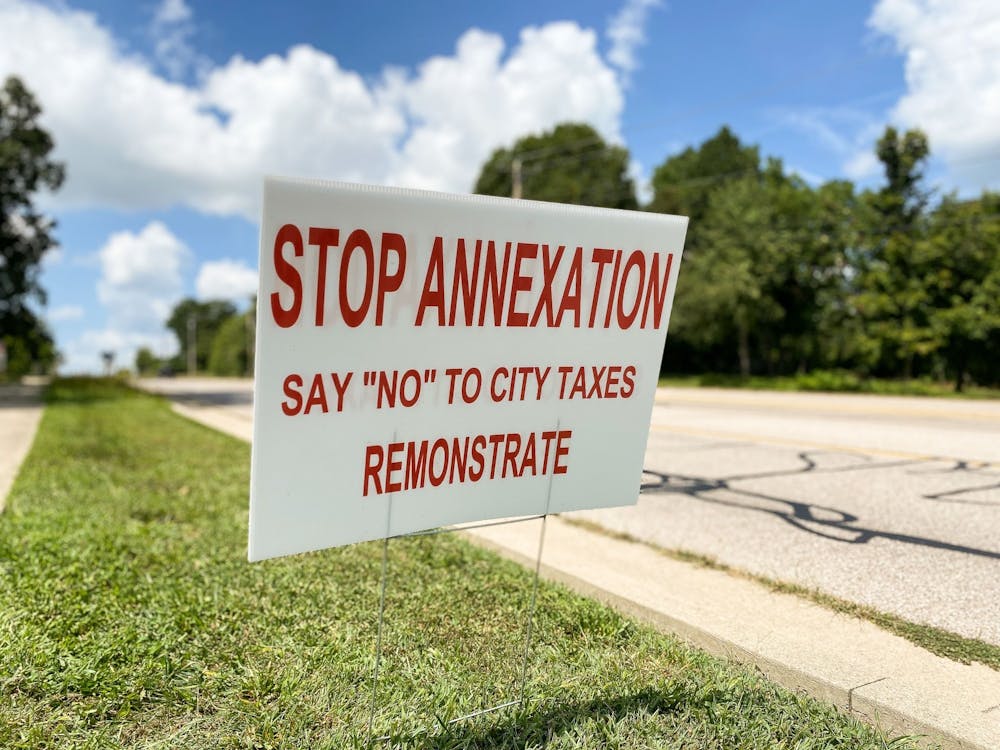Bloomington is seeking to avoid a full trial in its second annexation case, claiming that recent Indiana legislation unconstitutionally targets the city. If it's successful, the city would be a step closer to achieving annexation.
Annexation is a way for cities to expand their boundaries and grow. Bloomington’s most recent annexation attempt began in 2017 but has been slowed by opposition from the state and residents being annexed.
Related: ['Some of my neighbors were actually in tears': Opposition to annexation continues amid lawsuits]
In 2017, the Indiana legislature passed a law that prohibited the city’s annexation effort. The city sued, and in 2020, the Indiana Supreme Court ruled in favor of Bloomington, finding that the state’s legislation was unconstitutional because the law targeted Bloomington specifically.
The current lawsuit against Indiana has to do with city sewer service. When developers added city sewer service to a neighborhood, county residents who lived there waived their rights to protest annexation by signing petitions.
The lawsuit challenges Monroe County Auditor Catherine Smith’s decision to void annexation areas that reached the required 65% of residents opposed to annexation. Five out of seven annexation areas achieved these numbers. However, the city argues that this would not be the case if it wasn’t for a 2019 Indiana law that automatically voided waivers signed before July 2003 and set a 15-year expiration date for all other waivers. This legislation alone voided 80% of waivers.
Since the city’s annexation efforts were slowed by the original lawsuit, the city argues that the new legislation, made after the annexation process had begun, should not apply.
Related: [Judge rules in favor of the city in annexation lawsuit]
The city is requesting a summary judgement, which would allow the judge to make a decision without going to a full trial.
If the judge rules in favor of the city, then only signatures of people who did not sign remonstrance waivers will count. If the numbers do not exceed 65%, then those annexation areas will no longer be voided.
Last week, a special judge ruled in favor of the city in a lawsuit filed by County Residents Against Annexation and denied the group an extension in gathering signatures to oppose annexation.




